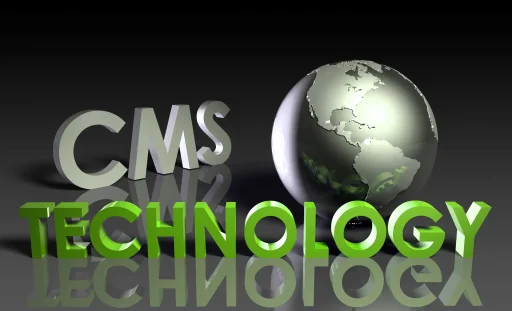Two major paths stand out: self-hosted WordPress vs Custom Coded CMS. Each approach comes with its own set of advantages and disadvantages, catering to different needs and preferences. In this article, we’ll dive into the pros and cons of both options to help you make an informed decision.
Table of Contents
Self-Hosted WordPress: The Versatile Content Management System
WordPress powers over a third of the entire web, and for good reason. Let’s find out why:
Pros:
- Ease of Use: WordPress is renowned for its user-friendly interface, making it accessible even to beginners with little technical knowledge. Its intuitive dashboard allows users to create and manage content effortlessly.
- Massive Plugin Ecosystem: With thousands of plugins available, WordPress users can extend the functionality of their sites with ease. Whether you need SEO optimisation, e-commerce capabilities, or social media integration, there’s likely a plugin for it.
- Themes for Every Taste: WordPress offers a huge amount of themes, both free and premium, catering to various industries and design preferences. Users can easily customise their site’s appearance without touching a single line of code.
- Community Support: Being an open-source platform, WordPress boasts a vibrant community of developers, designers, and users. This means ample resources, forums, and tutorials are available to assist with any issues or customisation needs.
- SEO-Friendly: One of the most important questions of WordPress vs Custom Coded CMS, WordPress is inherently SEO-friendly, with features such as clean permalink structures, customisable meta tags, and plugins like
Yoast SEORank Math SEO that further enhance optimization capabilities.
Cons:
- Security Concerns: Due to its popularity, WordPress can be a target for hackers. While security plugins and regular updates mitigate this risk, maintaining a secure WordPress site requires diligence and awareness.
- Performance Challenges: As WordPress sites grow in complexity, performance issues such as slow loading times can arise. Optimisation techniques and caching plugins can help alleviate these issues, but they may require technical expertise to implement effectively.
- Dependency on Plugins and Themes: While the abundance of plugins and themes is a strength, relying too heavily on them can lead to compatibility issues and bloat. Users must carefully vet and update their plugins and themes to avoid potential conflicts and security vulnerabilities.
- Limited Customization: While WordPress allows for extensive customisation through themes and plugins, users may encounter limitations when trying to implement highly unique or complex designs and functionalities.
Custom Coded CMS/Blogging System: Tailored Precision
Custom coded CMS or blogging systems offer unparalleled flexibility and control, but they come with their own set of considerations:
Pros:
- Tailored to Your Needs: Custom solutions are built from the ground up to meet your specific requirements, offering unparalleled flexibility and scalability. You have complete control over every aspect of your website’s functionality and design.
- Optimised Performance: Without the excess baggage of unnecessary features and code, custom-coded systems often boast superior performance compared to off-the-shelf solutions like WordPress. This is particularly advantageous for high-traffic sites or those with unique performance requirements.
- Enhanced Security: With no reliance on third-party plugins or themes, custom-coded systems can be inherently more secure, as they are less susceptible to common vulnerabilities present in widely-used platforms like WordPress.
- Freedom from Vendor Lock-In: Custom solutions provide independence from the limitations and constraints imposed by proprietary platforms. You’re not at the mercy of platform updates or plugin compatibility issues, giving you full ownership and control of your website.
Cons:
- Higher Development Costs: Building a custom CMS or blogging system from scratch requires significant time and resources, which can translate to higher upfront costs compared to using a platform like WordPress.
- Technical Expertise Required: Unlike WordPress, which offers a user-friendly interface, managing a custom-coded system often requires a higher level of technical expertise. This can pose challenges for non-technical users or small teams without dedicated developers.
- Longer Development Time: Custom development projects typically have longer lead times compared to setting up a WordPress site. The process involves thorough planning, development, testing, and refinement, which can delay time-to-market.
- Limited Third-Party Integration: Unlike WordPress, which boasts a vast ecosystem of plugins and integrations, custom-coded systems may have limited options for third-party integrations. This can be a drawback if you rely heavily on external services or tools.
WordPress vs Custom Coded CMS: Finding the Right Fit
Both self-hosted WordPress and custom coded CMS/blogging systems offer distinct advantages and disadvantages. The choice between the two, WordPress vs Custom Coded CMS, depends on factors such as your budget, technical expertise, customisation requirements, and long-term goals.

If you’re looking for a cost-effective solution with a user-friendly interface and a vast ecosystem of plugins and themes, WordPress may be the way to go. However, if you require unparalleled flexibility, performance optimisation, and security, investing in a custom-coded solution could be the ideal choice.
Ultimately, whether you opt for the versatility of WordPress or the precision of a custom-coded system, prioritising your specific needs and goals is key to building a successful online presence.
So, WordPress vs Custom Coded CMS? Got any questions about this article? I’m happy to answer any questions you may have. If you are local to Dunedin or I’m in your town (I get around the place a bit) we could catch up and discuss over coffee:)





